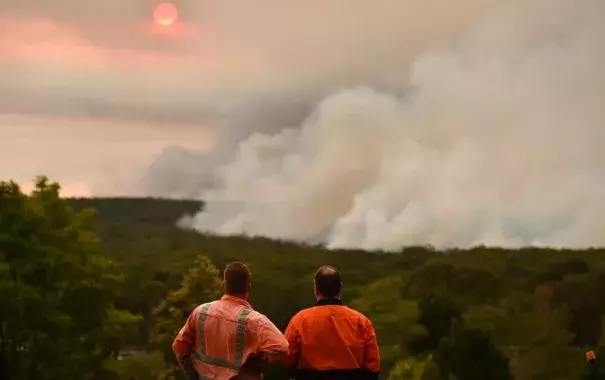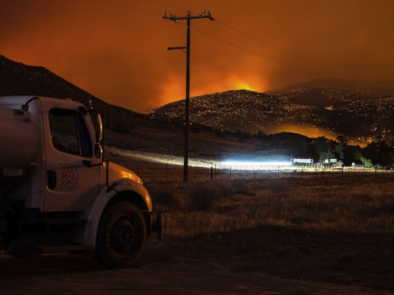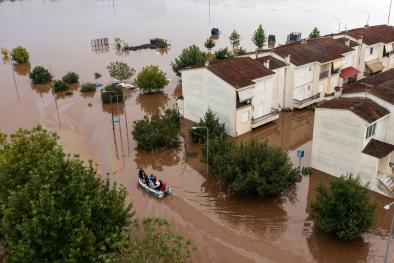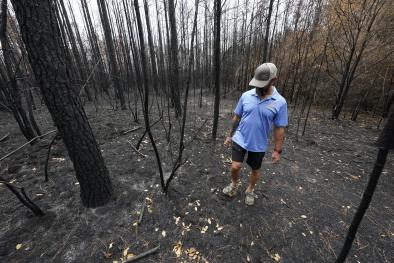Smoke from Australia's Bushfires Killed Hundreds

Climate Signals Summary: Climate change has increased the risk of bushfires in Australia through hotter temperatures, more frequent and intense heat waves, and drier conditions. The 2019-2020 Australia bushfires have now been definitively tied to climate change using attribution science, which links climate change to observed weather events.
Article Excerpt: Smoke from Australia’s disastrous bushfires killed hundreds of people and sent thousands to hospitals and emergency rooms, according to a new study.
The estimated death toll does not include fatalities resulting directly from the flames that spread across much of eastern Australia late last year.
A research letter made public yesterday in the Medical Journal of Australia finds that at least 417 people died from smoke inhalation.
Bush fire smoke also sent over 3,000 people to hospitals for cardiac and respiratory problems and forced more than 1,300 to emergency rooms for asthma attacks.
...
The unprecedented bushfire season has been linked to global warming as record heat and dry conditions preceded the outbreak. The study suggests that rising temperatures are having a profound impact on the health of the country’s population.
More aggressive adaptation measures in Australia are required to protect the public from future climate-related disasters, the researchers argue.
...
The research team, composed of scholars from the Australian states of Tasmania and New South Wales, says the spike in deaths and hospitalizations in regions affected by smoke can be mainly attributed to fine particulate matter. The highest level of particulate matter exposure recorded during the fire emergency exceeded the historic mean value by more than 14 times, the paper notes.
Related Content






